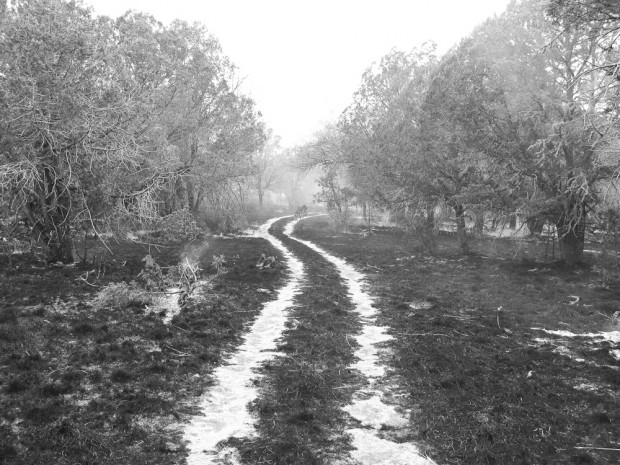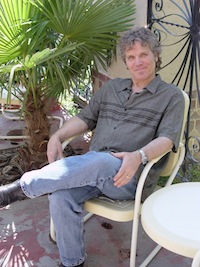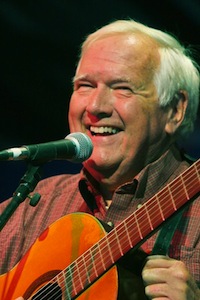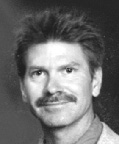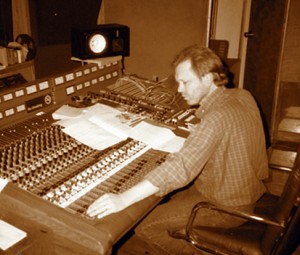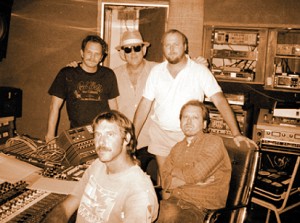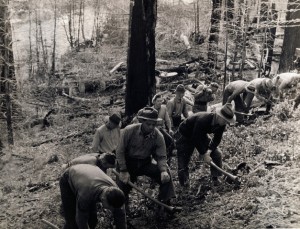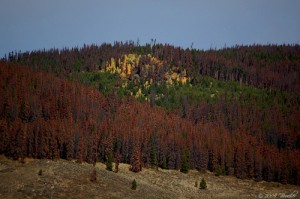Anjela got her wallet stolen Friday. We’re not sure if it got lifted from her purse or fell out somehow but within minutes of her last seeing it someone started using credit cards at a Target store in N Austin, charging $1200. Also within minutes I got a call from USAA fraud department asking if we had made these charges and if we had our cards in our possession. I had mine so I called Anjela. “Of course I have it, I just… Shit! My wallet’s gone!!” Luckily she doesn’t carry much in her wallet: a few credit/debit cards, her driver’s license, insurance cards, a couple rewards cards, a store gift card, a “lucky” $2 bill. We started making calls. The process for canceling the cards was quick and painless. New cards are on their way. She was very near the driver’s license office so she went directly and got a new DL. En route she called the police and, surprisingly to me, they were interested, assigned a case number and detective, asked us to contact them if the credit card companies could give us any details about when and where the cards had been used. They were appreciative when Anjela called back and gave them this information and said they would use it to look at the security footage to see if they could identify the culprit. I kind of figured in a city of this size the cops just wouldn’t really pursue something like this. I’m glad they do and hope they catch the person(s).
The hardest thing was to wrap our head around “How does someone do that?” If they lifted the wallet then that’s one thing, but if it fell out how does someone see it, pick it up and think “Yeah! Let’s steal some shit!” It’s hard to understand. What if it was their wallet?
But it gets better… About 8:30pm I got a phone call. “Is this Todd Jagger? Do you have a wife or girlfriend named Anjela Garcia? I found her wallet in a Target bag on 183.” He sounded older, very Texas country. I asked if we could meet him. He said he was at Mehl’s Motel on N Lamar near Airport Blvd. I vaguely remembered some seedy motels in that area. But he gave me his name and his phone number, told me what he was wearing and that he’d be outside. Before we left I told Anjela she should call the police and let them know someone found her wallet. She did and they told her, “Do not go there without a police escort. Go near the location, call 911 and give them your case number and wait for a patrolman.” We were kind of torn on this. I mean sure, the guy may or may not be associated with the thieves. Certainly he was hoping for a reward though he didn’t ask or even mention it on the phone. Probably just a guy trying to do the right thing. We didn’t want to jam him up with the cops, y’know? We decided, “Well, let’s just drive by and have a look. If it looks cheesy we’ll call the cops.”
Mehl’s Motel is an old 1950’s motor court, the kind that has a single lane arch-covered entrance and exit. You hardly notice it in the slow gentrification of that area of Austin. It was very run down, very dark, looked very dicey. There was no way I was going to drive or walk in there. We went to a new BBQ restaurant a half block away and called the police. We still felt conflicted about putting something like this in motion but it seemed like the only reasonable course. They said a patrolman was on the way. It took a bit longer than we thought it would but about 13 minutes later I saw a patrol car coming down Lamar. I tried to get his attention but he drove past, passed the motel then turned around and drove past us the other way, then turned around again and came into the parking lot. I guess he was checking things out. He was a big guy, 6’3″ 230 lbs. He almost crushed my hand with his handshake without even trying. We told him that the guy seemed like he was trying to do the right thing and we didn’t want to cause any trouble for him. The officer said, “Yeah, you want to think people are okay but the sad thing is you just don’t know. You’ve got to be careful. I’ve been working this area for a long time and, well, Mehl’s Motel isn’t the La Quinta, you know. He may be the one who stole it, you just don’t know. Let’s roll over there and talk to him.”
He didn’t drive into the court either. He parked the patrol car in front of the complex. Immediately people started scattering, movement in the shadows of the motor court, a guy briskly left the complex trying to look nonchalant as he walked away from the patrol car at a clip. Taking the cue we didn’t pull in either, we parked on the street next door. As the big cop walked into the court and more people saw him they shuffled inside rooms shutting the doors behind them. It was a little surreal, like a scene from a movie. He found the room and the man came out. He wasn’t nervous or upset that we had brought an officer with us. I kind of apologized saying we already had a case and they told us we needed to bring an officer. He said no problem. He handed Anjela a Target bag with just the cards in it, no wallet. Most of the cards were there but not all. The main thing was her driver’s license – we didn’t want that out there for identity theft ease. I guess the thieves probably took out any cards they thought they could use and tossed the wallet with her insurance and store cards, then tossed the bag with the cards after when they realized they had been flagged stolen. Of course it’s also possible the man was involved somehow. The cop took the man’s ID and asked us to wait by his car. I handed the man $50, thanked him and shook his hand. He didn’t seem like a thief. He said “I just thought ‘What if I had lost my wallet, I’d want someone to do the same.'”
So that’s the kind of stuff that happens in the city. I guess it can happen anywhere but you just don’t think it’s going to happen to you. From memory can you name everything in your wallet? What about the account numbers and numbers to call? Right now, take everything out of your wallet and take a picture of it or put it on a scanner – front and back. If you have neither of those write the numbers down. Don’t carry your social security card or any little pieces of paper with passwords, PINs or personal information. Do have a contact phone number. Use gift cards right away – they can’t be traced or replaced. Have an alternate credit card somewhere so you aren’t left without resources. And watch out for thieves.


